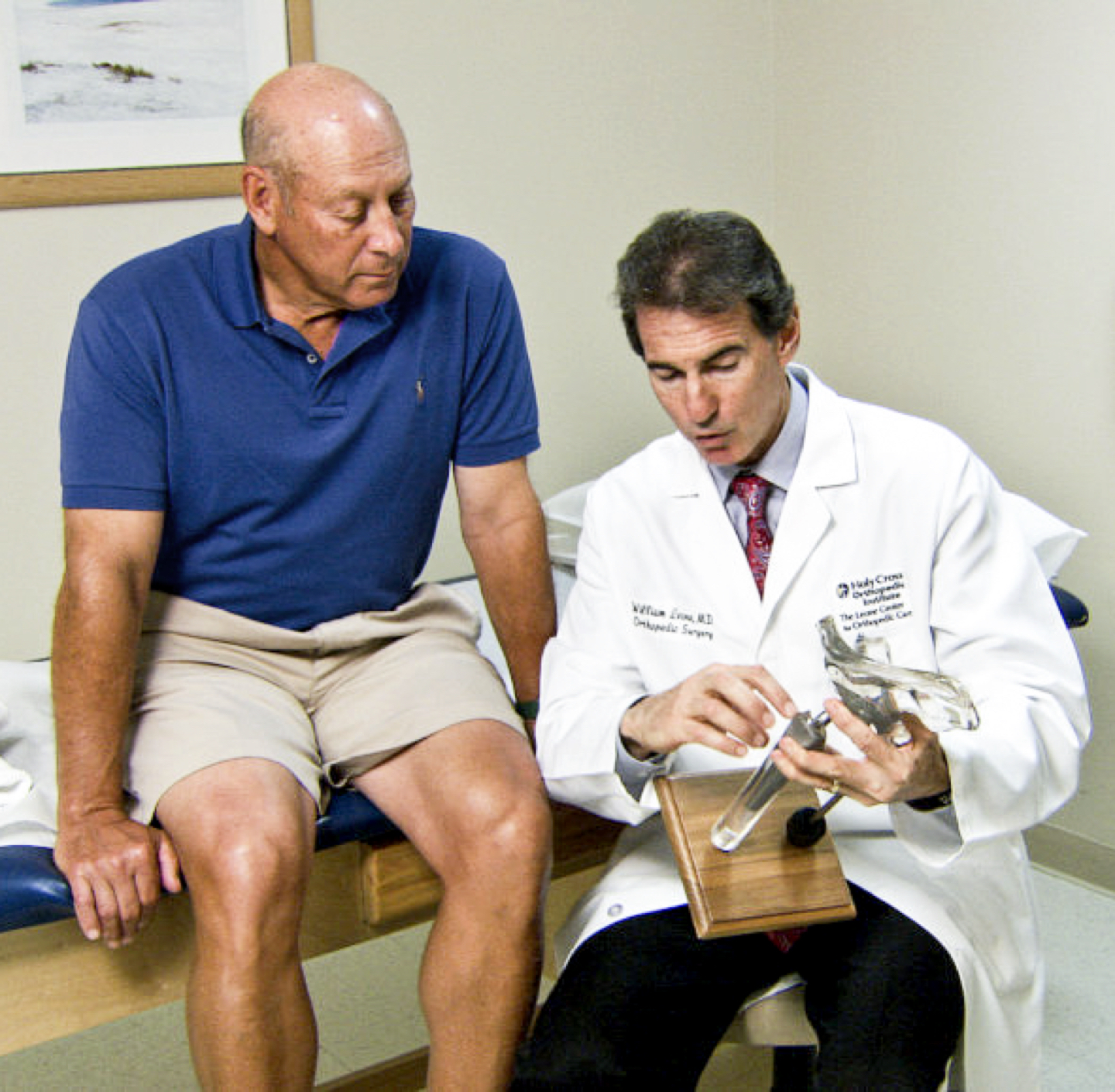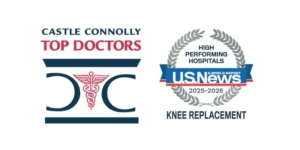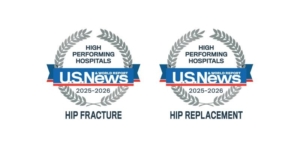Preventing Infection
We take every precaution to prevent a postoperative infection and take great pride in our track record. This process begins pre-operatively through nutritional health and hygiene. Before surgery, we encourage you to optimize your nutritional health, with a diet of rich in fruits, vegetables, lean protein, such as chicken or fish, and whole grains. You are also asked to supplement your diet with Vitamin C and iron which help the healing process and improve your body’s ability to prevent an infection.
We recommend that you wash using a special soap the night before your surgery and again the morning of your surgery. Refer to our Hip/Knee Booklet for more specific instructions. During surgery, we wear body exhaust suits (that look like space suits) to completely isolate our breathing which further reduces the risk of infection. You receive IV antibiotics before the incision is made and after your surgery. Even the surgical dressing has special antiseptic properties.
Blood Transfusions
The need for a blood transfusion has decreased markedly in recent years due to improved surgical and anesthetic techniques, such as the use of tranexamic acid which helps stabilize blood clots, reducing the need to transfuse. Also, the prior threshold for transfusion has been lowered as traditional benchmarks have been challenged and refuted in medical literature.
What that means is that the percentage of people who require a transfusion post-surgery is very small. Dr. Leone emphasizes maintaining the volume of fluid in the vascular system with fluids other than transfused blood.
If a transfusion is necessary, however, we recommend using donated blood from our blood bank rather than autologous blood, which is blood donated before surgery by patients for their own use.
Improvements in screening donated blood for diseases such as HIV or hepatitis coupled with its benefits make it a better choice. For this reason, we discourage our patients from pre-donating for themselves.
Here’s why. The red blood cells in transfused blood must be alive and function normally to deliver oxygen to our body tissues. Blood cells removed from our own body (autogenous) and then frozen do not deliver oxygen to the tissues as optimally as we thought in the past. Also, donating blood for oneself lowers the preoperative hemoglobin level which increases the need for a postoperative transfusion. You can read more about blood transfusions on my blog.
Medicines prescribed for use at home
You will be given very specific instructions regarding what medicines to take and when to take them to manage pain and prevent common post-op problems like constipation. We often prescribe a combination narcotic/Tylenol/and nonsteroidal anti-inflammatory medicine.
We make arrangements for your medication to be filled by a local pharmacy before you leave Holy Cross Health and deliver it to you at the time of discharge. For many patients, having the pain medication in hand before they leave is very reassuring, even if they do not have to use it. We also verify that arrangements have been made for delivery of specified supplies to your home, such as walkers or elevated toilet seats, if appropriate.
For more information on managing post-operative pain at home please read my blog on Managing Post-Operative Pain.




